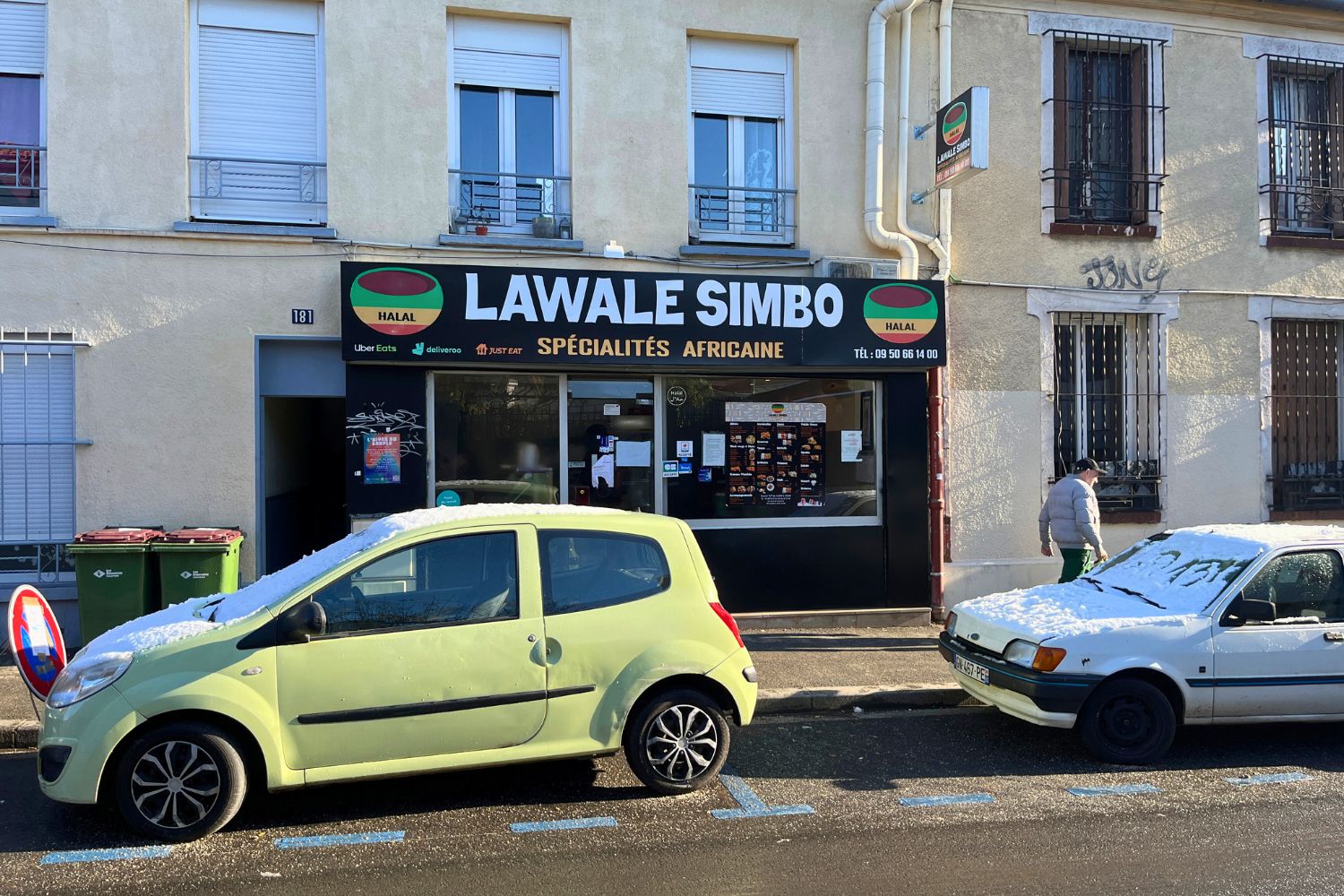Image

Prep Vocab
Dialog
Audio file
SITUATION: Abi has finished eating at a restaurant. As her server approaches her table, she says something to him.
ABI: I barika!
BAARAKƐLA: Barika Ala ye!
ABI: To diyara dɛ. I ni ga! [1]
BAARAKƐLA: Nba! K'à suma i kɔnɔ!
ABI: Amiina! N fara dɛ!
BAARAKƐLA: I tɛ taa i da? [2]
ABI: N bɛna taa. N bɛna bonya fana!
BAARAKƐLA: Munna i ko ten? [3]
ABI: N b'o fɔ bawo n bɛna na sini! Yan ka di! [4]
BAARAKƐLA: I ni ce! I ka kuma ye bonya ye.
ABI: Thanks (to you!
BAARAKƐLA: Thanks to God!
ABI: The "tô" was delicious. Nice cooking! [1]
BAARAKƐLA: Thanks! May it be cooled inside you.
ABI: I'm full, man!
BAARAKƐLA: Won't you go and lay down? [2]
ABI: I will go. I am going to get fat too!
BAARAKƐLA: Why do you say that? [3]
ABI: I say it because I am going to come (back) tomorrow! Here is delicious! [4]
BAARAKƐLA: Thanks! Your words are respect.
BAARAKƐLA: Thanks to God!
ABI: The "tô" was delicious. Nice cooking! [1]
BAARAKƐLA: Thanks! May it be cooled inside you.
ABI: I'm full, man!
BAARAKƐLA: Won't you go and lay down? [2]
ABI: I will go. I am going to get fat too!
BAARAKƐLA: Why do you say that? [3]
ABI: I say it because I am going to come (back) tomorrow! Here is delicious! [4]
BAARAKƐLA: Thanks! Your words are respect.
Grammar Points
- 1) Making verbs with
-ya - 2) Reflexive verbs
- 3) Using
koto express "to say" - 4) Expressing "because" between two clauses
Lesson
[Video coming soon!]
Vocab
- I barika! / Barika!
- interjection that is said after eating to say "thanks". [< Arabic word for "blessing"]
- Barika Ala ye!
- typical interjection used to respond to someone saying "Barika!". It literally means "Barika to/for God!"
- ka diya
- to please; to be pleasing
- ga/gwa
- hearth [as in, "the place where one cooks"; by extension, it can mean "cooking; cuisine"]
- ka fa
- to fill
- k'i da/la
- to lay (yourself) down; to go to bed
- ka bonya
- to fatten; to become fat/large
- munna
- why
- ko
- quotative copula [often used to express "to say"]
- bawo
- because
- bonya
- large-ness; respect
- di
- pleasing; sweet; tasty
- À diyara
- It was pleasing
- tubabu
- white/Western person
- ka tubabuya
- to become (like) a white/Western person
- tubabuya
- white-ness; Western-ness; the condition of being a white/Western person
- i
- formal reflexive marker
- N ye n da
- I laid (myself) down
- À y'i/à da
-
He/she laid (him/herself) down
- I y'i da?
- Have you gone to bed? (Lit. "Have you laid yourself down?")
- I tɔgɔ ko di?
- What's your name?
- Ko di?
- Come again?; What do you say? (Lit. "Say how?")
- Ko mun?
- (So-and-so) says/said what?
- I ko di?
- You say/said what?
- N ko "Na yan"
- I said "Come here"
- N m'à fɔ (ko) "Na yan"
- I didn't say "Come here"
- À ko n ka na ni dumuni ye
- She said I should bring out food
- À ko ko n ka na ni dumuni ye
- She said that I should bring out food
- Den ye kini bɛɛ dun ko à ta don
- The child ate all the rice (as if he were saying to himself that it was his)
- N ye kini san katugu kɔngɔ bɛ n na
- I bought rice because I am hungry
- X kosɔn
- because of X
- N ye kini san kɔngɔ kosɔn
- I bought rice because of hunger
- X kanma/kama
- for X
- N ye kini san kɔngɔ kanma
- I bought rice for (the purposes of dealing with) hunger
- Mun kosɔn?
- What for? [as in, "Why (did you do it?)"]
- Mun kanma?
- Because of what? [as in, "Why (did you do it)?"
- makaroni
- pasta; cf. 'macaroni'
- salati
- salad (< Fr. salade)
- na
- sauce (vs. `ka na` "to come")
- naji
- soup
- to
- West African "swallow" dish that one dips into sauce
- ka tila fɛn na
- to finish with something
- malo
- rice [Jula]; uncooked rice [Bambara]
- kini
- (cooked) rice [Bambara]
- cɛkɛ
- attiéké (a steamed cassava based dish)
- loko
- plantains
- foronto
- spicy pepper
- barisa
- because
- katugu
- because
- sabu(la)
- because
- pariseke/paseke
-
because [< Fr. _parce que_]
- ka sababuya kɛ
- because





